English Composition
Unlock Your Voice, Craft Your Words.
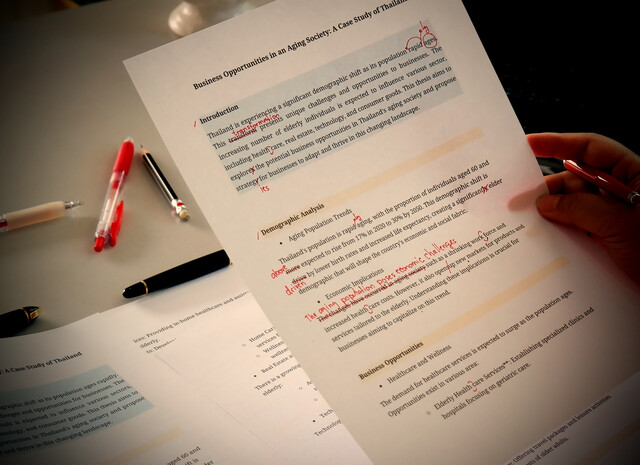
11 Hours average completion time
1.1 CEUs
12 Lessons
25 Exams & Assignments
15 Discussions
11 Videos
17 Reference Files
83 Articles
Mobile Friendly
Last Updated January 2026
In the era of communication, where content is the cornerstone of digital platforms, and the ability to articulate ideas clearly is paramount, the craft of English composition stands tall. Studies from the National Association of Colleges and Employers (NACE) reveal that written communication skills consistently rank among the top desired attributes by employers in their job candidates. However, effective writing goes beyond mere job qualifications-it is an essential life skill that elevates one's personal, academic, and professional journey.
Broadening Horizons Through Composition
The prowess of English composition stretches across varied domains:
-
Academic Excellence: A solid foundation in essay writing and thesis organization will bolster the performance of students in high school and college. Furthermore, for individuals gearing up for college or graduate school entrance exams, a refined skill set in composition can often be the difference between acceptance and rejection.
-
Business Acumen: As the business world continually evolves, professionals are expected to present their ideas, strategies, and reports in a lucid and compelling manner. Whether it's drafting an intricate proposal, creating an engaging presentation, or simply corresponding with colleagues, a strong grasp of composition is indispensable.
-
Interview Preparedness: For those navigating the job market, the capacity to produce articulate written material during interviews-whether it's answering email queries or completing on-the-spot assignments-can significantly increase one's chances of landing the desired role.
-
Leadership and Supervision: Individuals in managerial or supervisory roles often find themselves swamped with documentation, from employee feedback to project outlines. A proficiency in composition ensures clarity, conciseness, and effectiveness in such tasks.
-
Personal Communication: In our daily lives, be it writing a heartfelt letter, blogging, or even engaging on social media, the ability to communicate effectively is invaluable.
Structured Learning: Crafting the Art of Composition
This course is meticulously structured to take learners through the nuanced journey of English composition:
- Essay Writing as a Process: Understand the iterative nature of essay writing, emphasizing continuous refinement.
- A Review of Grammar and Punctuation: Brush up on the foundational elements that lend precision and clarity to any written piece.
- The Structures of an Essay: Dive deep into the anatomy of essays, analyzing each segment's purpose and execution.
- Outlining: Master the art of creating blueprints for essays, ensuring coherent flow and logical sequencing.
- Developing a Powerful Thesis Statement: Craft compelling central ideas that captivate readers and anchor your essays.
- Introduction to the Concept of Research: Navigate the world of information, discerning between credible sources and understanding citations.
- Rough Drafting or First Drafting: Learn the techniques to transform ideas into textual form, laying the groundwork for refinement.
- The Revision Process: Refine your drafts, enhancing their quality through iterations, feedback, and self-assessment.
- Writing Effective Introductions and Conclusions: Discover the art of beginning with impact and ending with lasting impressions.
- The Final Draft: Assemble a polished piece, ready for submission or publication.
- Introduction to Style Guides: Familiarize yourself with various formatting standards, ensuring your writings meet professional benchmarks.
- Conclusion: Reflect on the acquired knowledge, assimilate learnings, and chart the path forward in your writing journey.
Write Your Way to Success
The dynamism of English composition is undeniably vast. Its applications permeate every facet of modern life. By investing in this course, learners don't just acquire a skill-they acquire a tool, a voice, a means to express, influence, and inspire.
Join us, and let the world resonate with your words. Discover the power of composition and harness it to craft stories, arguments, reports, and more, that leave an indelible mark. Let's write, refine, and revel in the magic of words!
- Adapting writing to diverse audiences
- Crafting impactful introductions and conclusions
- Refining drafts for clarity
- Developing persuasive arguments
- Critical thinking and analysis
- Effective written communication
- Mastering grammar and punctuation
- Creating structured outlines
- Organizing complex ideas clearly
-
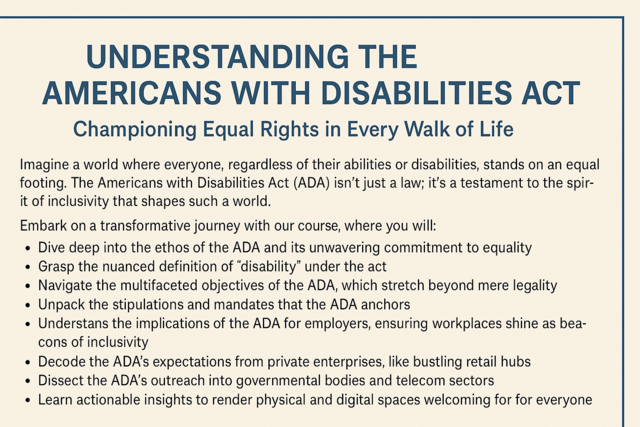
Understanding the Americans with Disability Act
-

Resume Writing
-

Wings and Blooms: Create Perfect Butterfly Gardens
-

Management Essentials
-

Introduction to Ethics
-

Job Performance Appraisals - A How To Guide
-

Criminology: The Anatomy of American Justice
-

Tea Party Mastery: From Brew to Ambience
-

Medical Billing and Coding Course Bundle
-
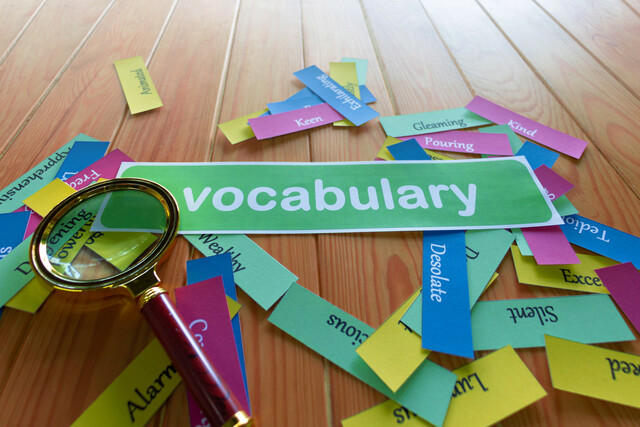
Vocabulary Level 3
-

Alzheimer's Disease 101
-
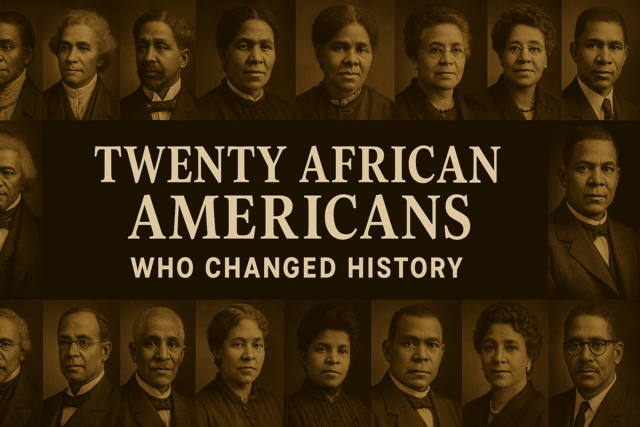
Twenty African Americans Who Changed History
-

Habits of Millionaires
-

Caring for Seniors
-

Accounting Level 2: Company Financials
-

Applied Statistics 101
-

Vocabulary Level 2
-
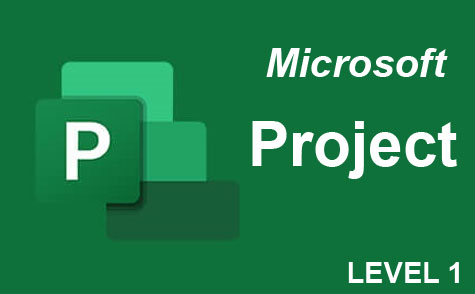
Microsoft Project Level 1
-

Healing Affirmations
-

Understanding Addictions
-

Advocacy for Elderly Patients
-

Become a Life Coach - Course Bundle